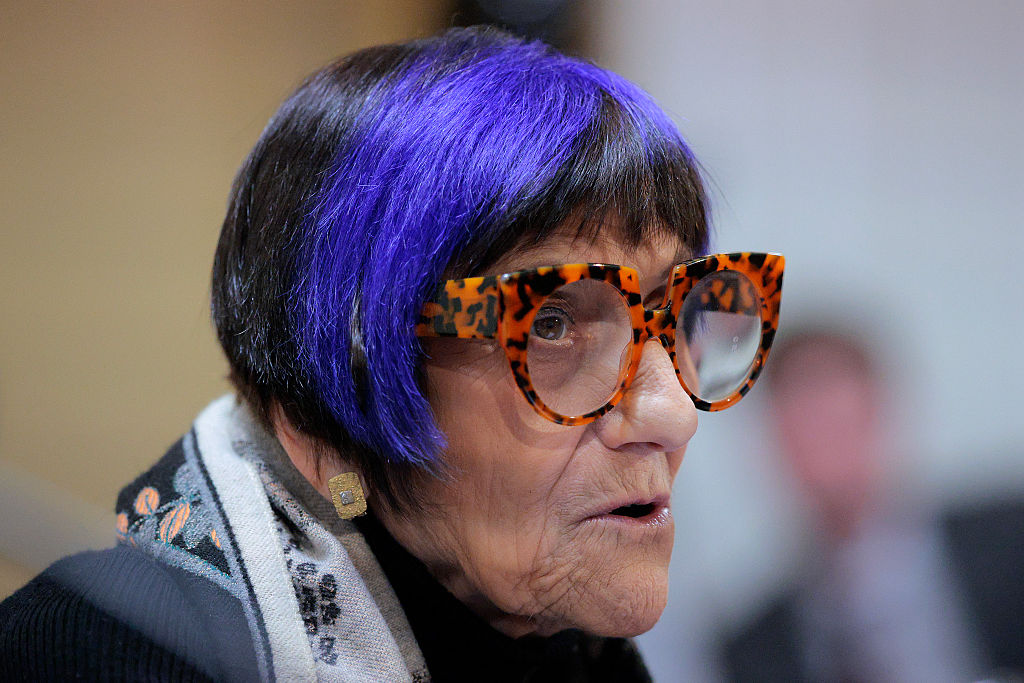
Catholic U.S. House Democrats cited Church teaching in defense of the dignity of migrants as Trump administration officials defend immigration enforcement.
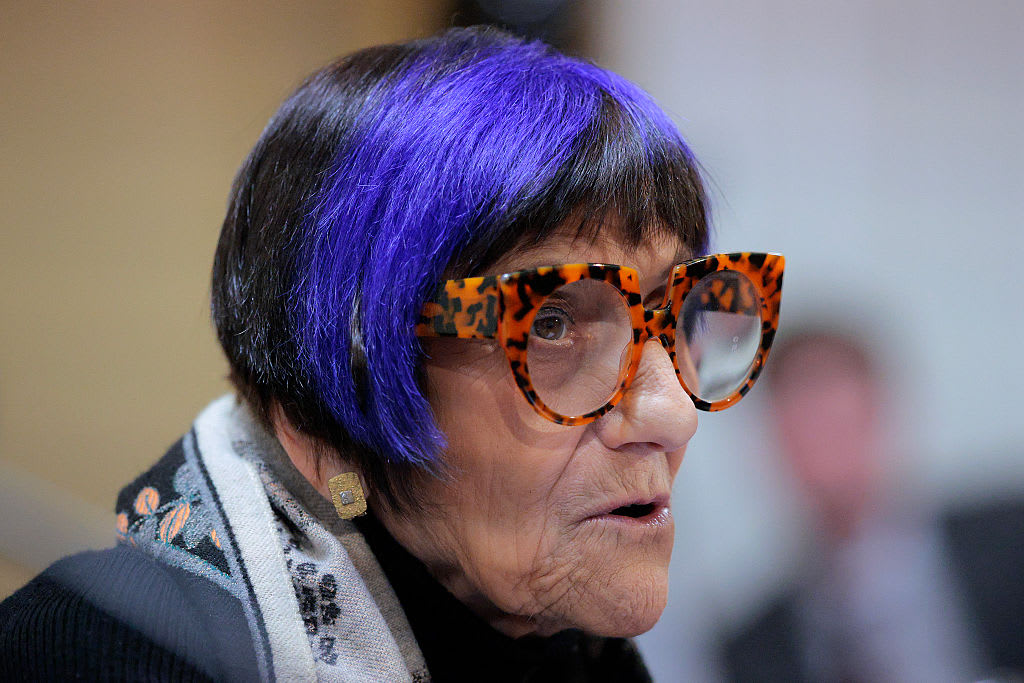

Catholic U.S. House Democrats cited Church teaching in defense of the dignity of migrants as Trump administration officials defend immigration enforcement.


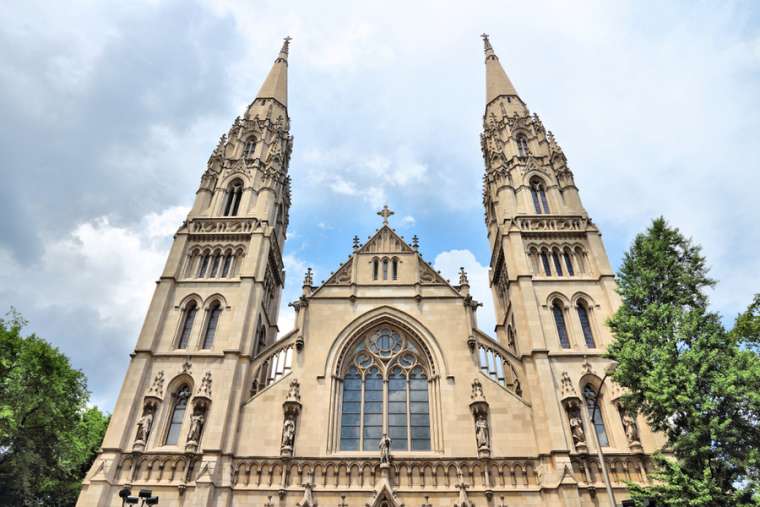
Parishioners learned that seven churches will be closed in March due to financial constraints and lower Mass attendance.
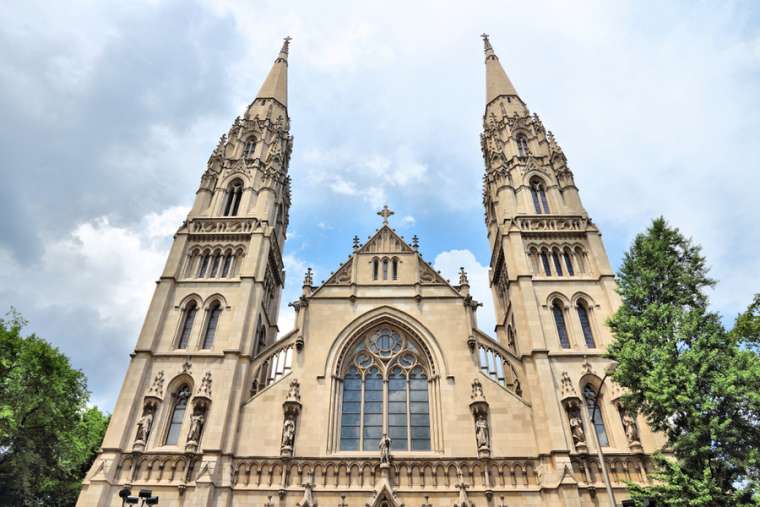
![Democratic lawmaker asks ICE director if he’s ‘going to hell’ in fiery hearing #Catholic A Democratic lawmaker asked U.S. Immigration and Customs Enforcement (ICE) Acting Director Todd Lyons whether he believes he is “going to hell” in a contentious hearing with the House Homeland Security Committee on Tuesday, Feb. 10.Lyons — along with U.S. Citizenship and Immigration Services Director Joseph Edlow and Customs and Border Protection Commissioner Rodney Scott — testified before the committee as Congress negotiates potential reforms and funding for the agencies.On Feb. 3, Congress voted to extend funding for the Department of Homeland Security (DHS), which operates the three agencies, until Feb. 13 to end a four-day partial government shutdown. A deal has not yet been reached to extend funding further.At the hearing, Democratic lawmakers accused ICE of terrorizing the streets, using excessive force, and lacking accountability. Republicans defended ICE and rebuked Democratic officials in certain states for refusing to cooperate with federal immigration enforcement.One of the fiercest exchanges came from Rep. LaMonica McIver, D-New Jersey, who praised protesters for “peacefully rejecting your cruel agenda in the streets.” She said ICE believes it is “the highest power who decides which people deserve dignity, protection, and due process” and said “you are wrong [and] we are here for answers.”“How do you think judgment day will work for you, with so much blood on your hands?” McIver asked Lyons, to which he responded that he would not entertain the question.“Do you think you’re going to hell?” she followed up, before being chastised by Committee Chair Andrew Garbarino, R-New York, who told her to avoid personal attacks on witnesses and maintain decorum.McIver said “you guys are always talking about religion here, and the Bible.” She changed the subject slightly and asked Lyons whether he could name agencies that “routinely kill American citizens and still get funding,” which he also said was a question he was “not going to entertain.”“Once again, questions that you cannot answer and that is exactly why … we should not be funding this agency,” McIver said. “The people are watching you; they are watching you. And this is why we need to abolish ICE.”Lawmakers debate ICE operations, future of agencyThe killings of two American citizens at ICE protests — Renée Good and Alex Pretti — were a focal point of the hearing, and two examples that Democrats used to accuse ICE of excessive force and lacking accountability.Democratic Rep. Eric Swalwell, D-California, referenced both killings and criticized DHS Secretary Kristi Noem for referring to those who died as “domestic terrorists.” He asked Lyons whether he would apologize to the families or reject that characterization.Lyons said he would not comment on an ongoing investigation but would welcome a private conversation with the families.Democrats are split on whether to reform ICE or abolish it altogether.Rep. Seth Magaziner, D-Rhode Island, brought up instances in which he believes ICE used excessive force and suggested reforms are necessary before Congress awards funding.“It’s not just the actions of the agents in the field,” he said. “It is the lack of accountability from the top that has caused public trust to erode, and there needs to be major reforms before we vote to give any of you any more funding.”Alternatively, Rep. Delia Ramirez, D-Illinois, called for abolishing ICE and the entire DHS, which Congress formed to address terrorism threats after the Sept. 11, 2001, attacks. Ramirez said DHS was created to “violate our rights under the pretense of securing our safety.”“I’m going to say it loud and clear and I’m proud to stand by what I say,” she said. “DHS cannot be reformed. It must be dismantled and something new must take its place.”Rep. Michael McCaul, R-Texas, commented during the hearing that Democratic lawmakers “have called to abolish ICE [and] now they’re trying to shut it down” amid the negotiations and discussion during the hearing.He criticized the lack of coordination from Democratic-led “sanctuary” states and cities, which do not cooperate with ICE, saying the policies in Minneapolis “created a perfect storm for our officers being thrown into this situation.”Rep. August Pfluger, R-Texas, similarly expressed concern about ICE funding moving forward, based on the debates between the two parties.“It seems like one side of the aisle is in favor of open borders and wants to abolish ICE … and the other side of the aisle wants to enforce laws that are on the books,” he said.During the question and answer, Lyons expressed worry about the rhetoric from Democrats and noted that threats and assaults against ICE agents are on the rise. He said agents are trying to “keep America safe, restore order to our communities, [and] return the rule of law to this country.”“Those who illegally enter our country must be held accountable,” he said.Scott also showed concerns about the ongoing debate and expressed hope that DHS could receive support from both Republicans and Democrats.“I believe consistency and seeing support from the leadership on both sides of this building and the president is very important for our security,” he said. “I think the rhetoric and the … politicizing of law enforcement in general detracts from the general morale of our personnel.”Andrew Arthur, a resident fellow in law and policy at the Center for Immigration Studies, told “EWTN News Nightly” that he sees “much of [the Democratic threats to halt funding] as political theater,” noting that ICE will continue to operate regardless of whether Congress passes the funding bill.He said Democrats hope to take away an issue that made Trump popular during the 2024 election “and turn it into a bad issue for Republicans” in the midterms.Arthur said there may be some shifts in ICE’s approach in Minneapolis now that Border Czar Tom Homan is involved in seeking the “cooperation of state and city governments” that have been “reluctant, if not hostile” to immigration enforcement over the past year.The United States Conference of Catholic Bishops (USCCB) in November 2025 approved a special message with a 216-5 vote that declared opposition to “the indiscriminate mass deportation of people.”Late last month, about 300 Catholic leaders — including 15 bishops — asked Congress to reject ICE funding if the legislation fails to include reforms that have protections for migrants. Democratic lawmaker asks ICE director if he’s ‘going to hell’ in fiery hearing #Catholic A Democratic lawmaker asked U.S. Immigration and Customs Enforcement (ICE) Acting Director Todd Lyons whether he believes he is “going to hell” in a contentious hearing with the House Homeland Security Committee on Tuesday, Feb. 10.Lyons — along with U.S. Citizenship and Immigration Services Director Joseph Edlow and Customs and Border Protection Commissioner Rodney Scott — testified before the committee as Congress negotiates potential reforms and funding for the agencies.On Feb. 3, Congress voted to extend funding for the Department of Homeland Security (DHS), which operates the three agencies, until Feb. 13 to end a four-day partial government shutdown. A deal has not yet been reached to extend funding further.At the hearing, Democratic lawmakers accused ICE of terrorizing the streets, using excessive force, and lacking accountability. Republicans defended ICE and rebuked Democratic officials in certain states for refusing to cooperate with federal immigration enforcement.One of the fiercest exchanges came from Rep. LaMonica McIver, D-New Jersey, who praised protesters for “peacefully rejecting your cruel agenda in the streets.” She said ICE believes it is “the highest power who decides which people deserve dignity, protection, and due process” and said “you are wrong [and] we are here for answers.”“How do you think judgment day will work for you, with so much blood on your hands?” McIver asked Lyons, to which he responded that he would not entertain the question.“Do you think you’re going to hell?” she followed up, before being chastised by Committee Chair Andrew Garbarino, R-New York, who told her to avoid personal attacks on witnesses and maintain decorum.McIver said “you guys are always talking about religion here, and the Bible.” She changed the subject slightly and asked Lyons whether he could name agencies that “routinely kill American citizens and still get funding,” which he also said was a question he was “not going to entertain.”“Once again, questions that you cannot answer and that is exactly why … we should not be funding this agency,” McIver said. “The people are watching you; they are watching you. And this is why we need to abolish ICE.”Lawmakers debate ICE operations, future of agencyThe killings of two American citizens at ICE protests — Renée Good and Alex Pretti — were a focal point of the hearing, and two examples that Democrats used to accuse ICE of excessive force and lacking accountability.Democratic Rep. Eric Swalwell, D-California, referenced both killings and criticized DHS Secretary Kristi Noem for referring to those who died as “domestic terrorists.” He asked Lyons whether he would apologize to the families or reject that characterization.Lyons said he would not comment on an ongoing investigation but would welcome a private conversation with the families.Democrats are split on whether to reform ICE or abolish it altogether.Rep. Seth Magaziner, D-Rhode Island, brought up instances in which he believes ICE used excessive force and suggested reforms are necessary before Congress awards funding.“It’s not just the actions of the agents in the field,” he said. “It is the lack of accountability from the top that has caused public trust to erode, and there needs to be major reforms before we vote to give any of you any more funding.”Alternatively, Rep. Delia Ramirez, D-Illinois, called for abolishing ICE and the entire DHS, which Congress formed to address terrorism threats after the Sept. 11, 2001, attacks. Ramirez said DHS was created to “violate our rights under the pretense of securing our safety.”“I’m going to say it loud and clear and I’m proud to stand by what I say,” she said. “DHS cannot be reformed. It must be dismantled and something new must take its place.”Rep. Michael McCaul, R-Texas, commented during the hearing that Democratic lawmakers “have called to abolish ICE [and] now they’re trying to shut it down” amid the negotiations and discussion during the hearing.He criticized the lack of coordination from Democratic-led “sanctuary” states and cities, which do not cooperate with ICE, saying the policies in Minneapolis “created a perfect storm for our officers being thrown into this situation.”Rep. August Pfluger, R-Texas, similarly expressed concern about ICE funding moving forward, based on the debates between the two parties.“It seems like one side of the aisle is in favor of open borders and wants to abolish ICE … and the other side of the aisle wants to enforce laws that are on the books,” he said.During the question and answer, Lyons expressed worry about the rhetoric from Democrats and noted that threats and assaults against ICE agents are on the rise. He said agents are trying to “keep America safe, restore order to our communities, [and] return the rule of law to this country.”“Those who illegally enter our country must be held accountable,” he said.Scott also showed concerns about the ongoing debate and expressed hope that DHS could receive support from both Republicans and Democrats.“I believe consistency and seeing support from the leadership on both sides of this building and the president is very important for our security,” he said. “I think the rhetoric and the … politicizing of law enforcement in general detracts from the general morale of our personnel.”Andrew Arthur, a resident fellow in law and policy at the Center for Immigration Studies, told “EWTN News Nightly” that he sees “much of [the Democratic threats to halt funding] as political theater,” noting that ICE will continue to operate regardless of whether Congress passes the funding bill.He said Democrats hope to take away an issue that made Trump popular during the 2024 election “and turn it into a bad issue for Republicans” in the midterms.Arthur said there may be some shifts in ICE’s approach in Minneapolis now that Border Czar Tom Homan is involved in seeking the “cooperation of state and city governments” that have been “reluctant, if not hostile” to immigration enforcement over the past year.The United States Conference of Catholic Bishops (USCCB) in November 2025 approved a special message with a 216-5 vote that declared opposition to “the indiscriminate mass deportation of people.”Late last month, about 300 Catholic leaders — including 15 bishops — asked Congress to reject ICE funding if the legislation fails to include reforms that have protections for migrants.](https://unitedyam.com/wp-content/uploads/2026/02/democratic-lawmaker-asks-ice-director-if-hes-going-to-hell-in-fiery-hearing-catholic-a-democratic-lawmaker-asked-u-s-immigration-and-customs-enforcement-ice-acting-direc.jpg)
Top U.S. immigration officials defended their policies during a contentious hearing as lawmakers continue to negotiate potential ICE funding and reforms.
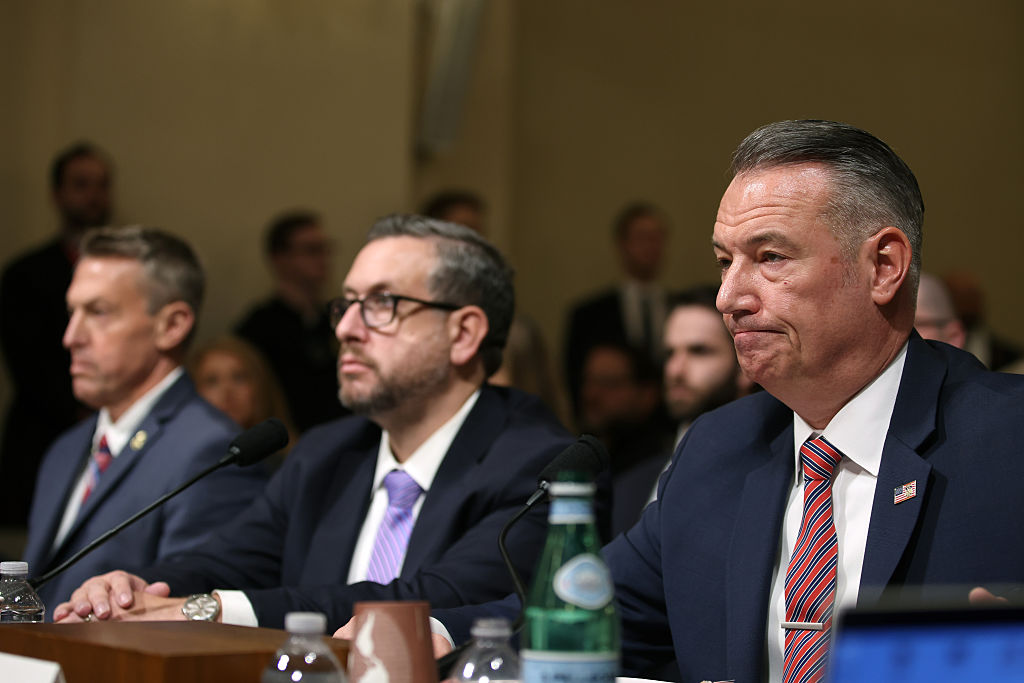
![Department of Justice investigates vandalism at California Catholic school #Catholic Federal officials are investigating after a Los Angeles-area Catholic school was targeted in a major act of vandalism that included the beheading of a statue of the Blessed Mother. Assistant Attorney General for Civil Rights Harmeet Dhillon said on X on Feb. 2 that the Department of Justice’s civil rights division “will open an investigation into [the] awful crime” against Holy Innocents Catholic School in Long Beach.TweetCyril Cruz, the principal of the school, told EWTN News that she came into the school early on the morning of Feb. 2 and discovered the vandalism in the hall where the school holds Mass. “Our statue of the Virgin Mary was smashed, and the tabernacle was removed and thrown to the floor in an apparent attempt to force it open,” she said. “The atrium lovingly prepared by the Carmelite Sisters for our scholars was completely destroyed.” “Audio equipment and lighting were ripped from the walls, speakers and instruments loaded onto carts, and the missals our students use daily were soaked and ruined.” Photos shared with EWTN News showed the vandalization in multiple rooms, including the destroyed statue, overturned shelves, scattered papers and Mass materials, and other scenes of destruction.
Destruction is seen at Holy Innocents Catholic School in Long Beach, California, Monday, Feb. 2, 2026. | Credit: Photo courtesy of Holy Innocents Catholic School
Cruz said Los Angeles Auxiliary Bishop Marc Trudeau was scheduled to hold a reparation Mass at the school on Feb. 3. The pastor of Holy Innocents Catholic Church and School, Father Peter Irving, was also scheduled to lead a Eucharistic procession around the school “as we entrust our community to Christ and respond with prayer, faith, and hope.”Irving told EWTN News that the community was “very sad,” though they were “very grateful” that the Blessed Sacrament was “not violated,” he said. “The tabernacle was not breached although it was left damaged,” he said. “Investigators said that this was the worst desecration that they have seen.”
Missals are tipped over and thrown around at Holy Innocents Catholic School in Long Beach, California, Monday, Feb. 2, 2026. | Credit: Photo courtesy of Holy Innocents Catholic School
The vandalism has received national media coverage. A GoFundMe campaign, meanwhile, had raised nearly $76,000 by the morning of Feb. 3. That campaign said Trudeau described the incident as “the worst case of vandalism that he’s ever seen in the region.”Still, Cruz said, amid the destruction, “our community came together — scholars, families, and Knights of Columbus — to clean, restore, and prepare the hall so that Mass could once again be celebrated.” “Yesterday, our school community gathered in prayer to pray the rosary for healing and also for the conversion and mercy for those who committed this act,” she added. “We are grateful no one was physically harmed, and we are responding as a faith community with prayer, reparation, and trust in Christ,” she said.](https://unitedyam.com/wp-content/uploads/2026/02/department-of-justice-investigates-vandalism-at-california-catholic-school-catholic-federal-officials-are-investigating-after-a-los-angeles-area-catholic-school-was-targeted-in-a-major-act-of-vandali.jpg)
The DOJ’s civil rights division will investigate the “awful crime” at Holy Innocents Catholic School.
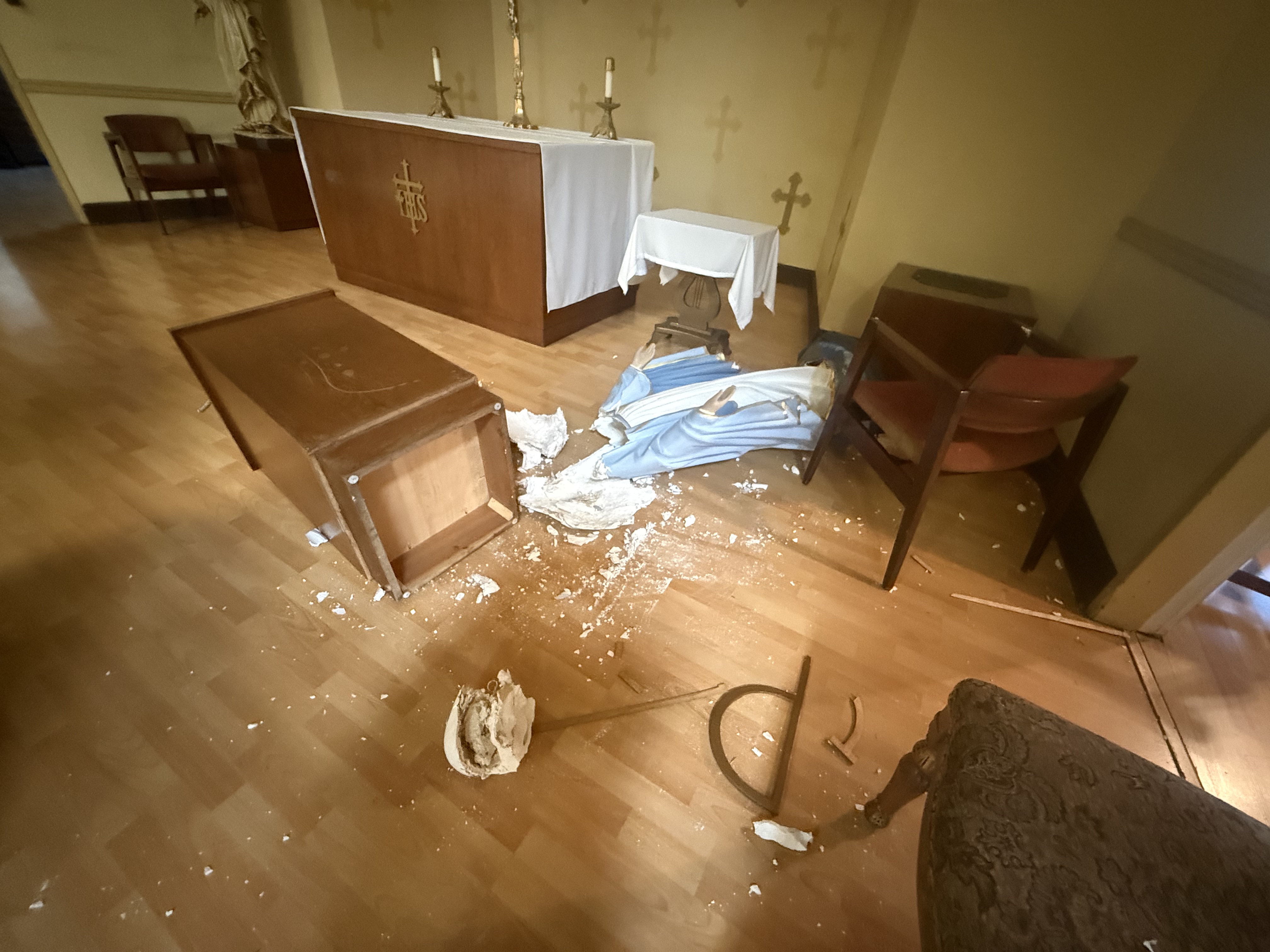
![Homeland Security Department says rule will address religious worker visa backlog #Catholic
Credit: Lisa F. Young/Shutterstock
Jan 14, 2026 / 10:25 am (CNA).
The Department of Homeland Security (DHS) said it is addressing a religious worker visa backlog with rules that will reduce wait times and disruptions in ministry for faith-based communities.“Under the leadership of Secretary [Kristi] Noem, DHS is committed to protecting and preserving freedom and expression of religion. We are taking the necessary steps to ensure religious organizations can continue delivering the services that Americans depend on,” a DHS spokesperson said in a press release Wednesday. “Pastors, priests, nuns, and rabbis are essential to the social and moral fabric of this country. We remain committed to finding ways to support and empower these organizations in their critical work.”Under the rule expected to be issued Jan. 14, religious workers in the country on R-1 visas would no longer be required to reside outside of the U.S. for a full year if they reach their statutory five-year maximum period of stay before completing their green card applications. “While R-1 religious workers are still required to depart the U.S., the rule establishes that there is no longer a minimum period of time they must reside and be physically present outside the U.S. before they seek readmission in R-1 status,” DHS said.DHS acknowledged the significant demand for visas within the EB-4 category “has exceeded the supply for many years,” citing 2023 changes implemented by President Joe Biden’s State Department. “By eliminating the one-year foreign residency requirement, USCIS [U.S. Citizenship and Immigration Services] is reducing the time religious organizations are left without their trusted clergy and non-ministerial religious workers,” according to a DHS statement.The rule, expected to be issued at 11 a.m. Jan. 14, is effective immediately, DHS said.Secretary of State Marco Rubio said in a press conference in December 2025 that the government would reveal its plan “early next month” for religious worker visas that would avoid giving preference to one denomination over another. Rubio noted that the plan would not favor one religion over another and that there would be “country-specific requirements depending on the country they’re coming from.” “I think we’re going to get to a good place,” Rubio said at the time. “We don’t have it ready yet. All this takes time to put together, but we’re moving quickly. I think we’ll have something positive about that at some point next month, hopefully in the early part of next month.”Visas for religious workers allow foreign nationals to work for a U.S. religious organization, through the temporary R-1 visa or a Green Card EB-4 visa, which requires at least two years of membership in the same denomination and a job offer from a qualifying nonprofit religious group.Rubio had also said in August the administration was working to create a “standalone process” for religious workers, separate from other competing applicants to the employment-based fourth preference (EB-4) category of visas that became severely backlogged after an unprecedented influx in unaccompanied minor applicants — most of which the USCIS has since alleged were fraudulent — who were added to the already-tight category under the Biden administration.In November 2025, a Catholic diocese in New Jersey dropped a lawsuit filed against the Biden administration’s State Department, Department of Homeland Security, and USCIS, citing knowledge of a solution with national implications.Since the issue of the backlogged visas started, multiple U.S. dioceses have called for a solution. Priests in the Archdiocese of Boston who are in the U.S. on visas were urged to avoid international travel amid the Trump administration’s immigration policies and deportations.Priests and other Church leaders have expressed fear of having to leave their ministries and return to their home countries, then endure lengthy wait times before coming back. Church officials have warned that a continuing backlog could lead to significant priest shortages in the United States.“We are grateful for the administration’s attention to this important issue for the Church and value the opportunity for ongoing dialogue to address these challenges so the faithful can have access to the sacraments and other essential ministries,” a spokesperson for the USCCB told CNA.](https://unitedyam.com/wp-content/uploads/2026/01/homeland-security-department-says-rule-will-address-religious-worker-visa-backlog-catholic-credit-lisa-f-young-shutterstockjan-14-2026-1025-am-cna-the-department-of-homeland-security.jpg)

Jan 14, 2026 / 10:25 am (CNA).
The Department of Homeland Security (DHS) said it is addressing a religious worker visa backlog with rules that will reduce wait times and disruptions in ministry for faith-based communities.
“Under the leadership of Secretary [Kristi] Noem, DHS is committed to protecting and preserving freedom and expression of religion. We are taking the necessary steps to ensure religious organizations can continue delivering the services that Americans depend on,” a DHS spokesperson said in a press release Wednesday. “Pastors, priests, nuns, and rabbis are essential to the social and moral fabric of this country. We remain committed to finding ways to support and empower these organizations in their critical work.”
Under the rule expected to be issued Jan. 14, religious workers in the country on R-1 visas would no longer be required to reside outside of the U.S. for a full year if they reach their statutory five-year maximum period of stay before completing their green card applications.
“While R-1 religious workers are still required to depart the U.S., the rule establishes that there is no longer a minimum period of time they must reside and be physically present outside the U.S. before they seek readmission in R-1 status,” DHS said.
DHS acknowledged the significant demand for visas within the EB-4 category “has exceeded the supply for many years,” citing 2023 changes implemented by President Joe Biden’s State Department. “By eliminating the one-year foreign residency requirement, USCIS [U.S. Citizenship and Immigration Services] is reducing the time religious organizations are left without their trusted clergy and non-ministerial religious workers,” according to a DHS statement.
The rule, expected to be issued at 11 a.m. Jan. 14, is effective immediately, DHS said.
Secretary of State Marco Rubio said in a press conference in December 2025 that the government would reveal its plan “early next month” for religious worker visas that would avoid giving preference to one denomination over another. Rubio noted that the plan would not favor one religion over another and that there would be “country-specific requirements depending on the country they’re coming from.”
“I think we’re going to get to a good place,” Rubio said at the time. “We don’t have it ready yet. All this takes time to put together, but we’re moving quickly. I think we’ll have something positive about that at some point next month, hopefully in the early part of next month.”
Visas for religious workers allow foreign nationals to work for a U.S. religious organization, through the temporary R-1 visa or a Green Card EB-4 visa, which requires at least two years of membership in the same denomination and a job offer from a qualifying nonprofit religious group.
Rubio had also said in August the administration was working to create a “standalone process” for religious workers, separate from other competing applicants to the employment-based fourth preference (EB-4) category of visas that became severely backlogged after an unprecedented influx in unaccompanied minor applicants — most of which the USCIS has since alleged were fraudulent — who were added to the already-tight category under the Biden administration.
In November 2025, a Catholic diocese in New Jersey dropped a lawsuit filed against the Biden administration’s State Department, Department of Homeland Security, and USCIS, citing knowledge of a solution with national implications.
Since the issue of the backlogged visas started, multiple U.S. dioceses have called for a solution. Priests in the Archdiocese of Boston who are in the U.S. on visas were urged to avoid international travel amid the Trump administration’s immigration policies and deportations.
Priests and other Church leaders have expressed fear of having to leave their ministries and return to their home countries, then endure lengthy wait times before coming back. Church officials have warned that a continuing backlog could lead to significant priest shortages in the United States.
“We are grateful for the administration’s attention to this important issue for the Church and value the opportunity for ongoing dialogue to address these challenges so the faithful can have access to the sacraments and other essential ministries,” a spokesperson for the USCCB told CNA.
Read More